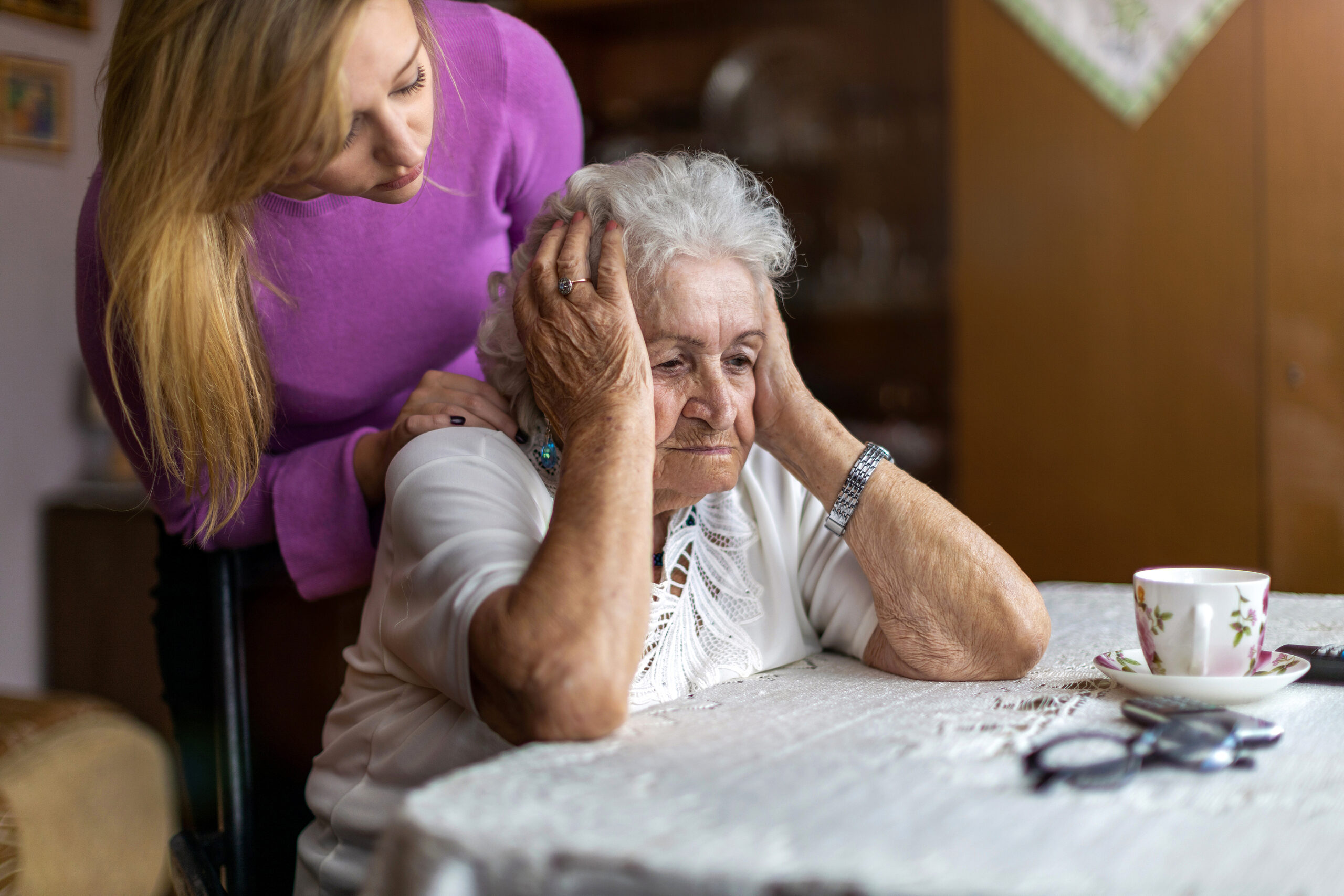Migraines and Older Adults

Author: Home Helpers Home Care
Every June is National Migraine & Headache Awareness Month, which means it might be a good time to talk with seniors about headaches they’ve been having and whether those might actually be migraines. Aging brings changes that seniors sometimes don’t expect, like suddenly experiencing migraines instead of the headaches they’ve had in the past. Also, aging can affect treatment options that once might have been effective for seniors. For seniors who get migraines often, senior home care providers can offer assistance that makes it easier to recover and even keep track of headaches and migraines.
Talk to Medical Providers
The first step is for seniors to talk with their doctors about the headaches or migraines they’ve been experiencing. If they’re noticing changes in their symptoms or in the events that seem to be triggering headaches, then they should mention that information, too. New symptoms can sometimes also be mistaken for other health issues, like aura symptoms appearing to be similar to stroke symptoms. Significant changes in headache symptoms could be a sign that there is more going on, and medical providers can dig deeper to help figure that out.
Understand the Treatment Options
Aging increases the risk of not only health issues, but also medication sensitivities and the possibility that medications for treating headaches and migraines might interact with other medications. Liver and kidney functions affect how medications are processed by the body, and as these organs experience changes, they may not work as well as they did in the past. There may still be treatment options available, but they may be tougher to find.
Consider Preventative Treatments, if Necessary
Preventative treatments might be a better option, especially for seniors who get headaches or migraines due to high blood pressure or because of some vitamin and mineral deficiencies, like magnesium or vitamin B. The key to using preventative treatments is to become consistent with them and to build them into solid routines. Home care providers can help seniors to do this more effectively, keeping them on track with their goals.
Aging Affects Medications
Aging affects so many aspects of how seniors metabolize medications, so some treatments might not work as well as they could have in the past. This could mean relying on different types of headache and migraine treatments, like neuromodulation devices that use magnets or electrical impulses to stimulate nerve endings. Some seniors might benefit from cognitive behavioral therapy or finding a vitamin regimen that works well for them.
Keep a Log
It’s usually a good idea to keep a log of what is helping, what isn’t, and what symptoms occur. Seniors may also want to track variables like the weather, what they’re eating, and how much water they’re drinking. These logs can help them to spot patterns that might not have been easy to spot otherwise. Doctors can also use these logs to troubleshoot when treatments might not be working well.
Some people “outgrow” headaches and even migraines as they get older, but other people find themselves suddenly dealing with this pain that is difficult to manage. Senior home care providers can help aging adults address lifestyle changes and remember to use the tools that they’ve found work well for them when they experience headaches or migraines.
If you or an aging loved one are considering senior home care in Crown Point, IN, please contact the caring staff at Home Helpers Home Care of NW Indiana today at (219) 244-2533.
Home Helpers Home Care of NW Indiana provides exceptional home and facility care for seniors in Highland, Munster, Crown Point, Schererville, Dyer, Saint John, Valparaiso, Cedar Lake, Griffith, Lowell and the surrounding areas.
